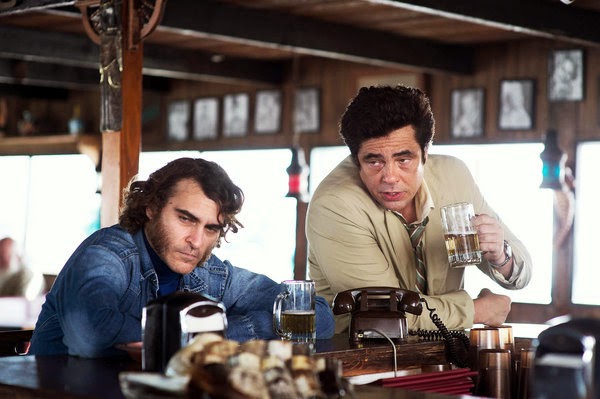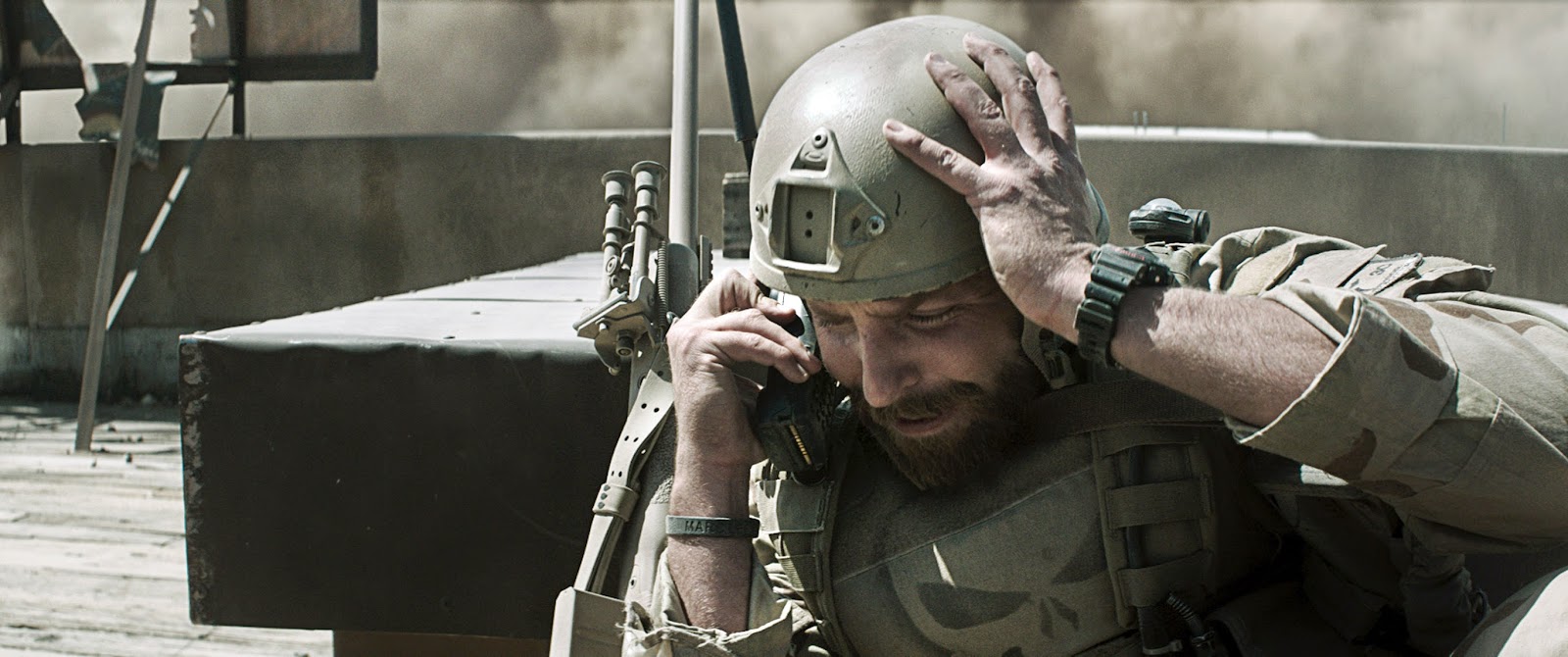 |
| "This elevator is only the beginning, Ms. Steele. There will be helicopters and planes! Maybe even a boat ride some day. Just don't try to get me to engage in any human behavior." |
My name is Eric Harris, and I have seen Fifty Shades of
Grey. Sorry, but I feel like I might need a support group after that
experience. This isn’t to say that the movie is bad (I didn’t think it was very
good, but it’s not the worst thing ever, either), it’s just that the Thursday
night, 30:1 ratio of women to men audience wasn’t for me. The support group
analogy is relevant for two reasons. 1. The plot of the film is essentially
about a woman figuring out what mental disorder a man she is obsessed with is suffering
from. 2. As I heard the bursts of maniacal laughter before and during the film,
I couldn’t help but start to psychoanalyze the audience and ask why any of them
were there. I was there because my wife wanted to see it (and a few people on
Facebook have been [jokingly?] requesting a review). This will be a review, but
there will also be a focus on the phenomenon of the film, as well.
My knowledge of the source material of Fifty Shades of Grey is minimal. I know that the book is extremely popular (even though it began as Twilight fan fiction) and contains graphic BDSM (if you don’t what this means, do your
own research; a simple definition would be “rough stuff”) sex throughout. I guess
I get the popularity; it’s “forbidden” and edgy. Also, the popularity itself
lends to more popularity. A lot of people are going to watch it, I believe,
simply because a lot of people are going to watch it. Based on this sparse
knowledge of the material, I assumed the book had a very serious tone. So I was
a bit surprised when it turned out the film was intentionally comedic many
times (and unintentionally a few times too, but more on that later).
I’ve been told the book has comedic elements, but is not
meant to be comedic in general, but I can see why the filmmakers decided to
play up some of the more absurd moments. A basic rundown of the story is necessary
to understand what’s so absurd about it. Anastasia Steele (Dakota Johnson), an
English major about to graduate, has to interview (she is subbing for her
journalism major friend) notoriously single and secretive billionaire Christian
Grey (Jamie Dornan). There’s a love at first sight moment (that I don’t buy),
and they begin a cat-and-mouse game of romance. When things get serious,
Christian reveals that he’s into BDSM to the point that he wants Anastasia to
go over a contract about what they will and will not do together. That’s where
it gets absurd. There is an actual meeting in which they go over the terms.
Thankfully, it’s played for laughs, as are most of the strange demands of
Christian. This, to me, is the saving grace of the film. By acknowledging the
crazier parts, it at least becomes a self-aware, albeit still silly, movie.
My problem with the movie isn’t that it attempts to be
funny; it’s that it doesn’t go far enough with the humor. Fifty Shades of Grey could have been a satirical dissection of romantic movies in general, but
instead falls into the same clichés that keep that genre down. It turns into a “Will
they, or won’t they?” story. There are moments where the film almost rises
above it, though. For example, Christian sets up a date then quickly says
Anastasia should stay away from him. It’s as cheesy as can be, but she later
(literally) calls him out on it. Moments like that perked my interest, but they
were few and far between.
No one is going to this film looking for a dissection of the
romantic genre, though. Most people are going for the sex. Honestly, the sex
scenes were some of the most boring moments of the film. It’s all very standard
R-rated stuff, for the most part, just much more of it than in most films. I
was reminded of The Room, the notoriously so-bad-it’s-good film from Tommy
Wiseau which features sex scenes that seem to go on forever. Perhaps others
will find something exciting there, but the sex scenes ended up feeling pretty
empty to me. And that should be a problem for any audience member. There isn’t
any emotion attached to any of this. These two characters claim to be on the
cusp of falling in love with each other, but aside from a helicopter and plane
ride, all these two do is have sex. Sure, they’re both pretty, and they are
physically attracted to each other, but nothing happens in the film to show
that they have anything more than physical feelings for each other. It’s fine
for a movie about a woman’s sexuality to not have love in it (check out Nymphomaniac
Vols. 1 & 2 from Lars von Trier if you want that; it even features much
more explicit sex than this), but these characters claim that love is part of
it.
This is why the movie is unintentionally funny. The
helicopter and plane rides stuck out to me as the funniest moments. It’s
something out of The Bachelor (let me get this out of the way: My name is
Eric Harris, and I watch The Bachelor). When Anastasia is in doubt of the
relationship, Christian takes her for a helicopter ride, and she’s in awe. She
gets a bit upset later on, so what does Christian do? “Plane ride, honey! Don’t
you feel better about things now?” And she does! That led me to conclude that
Anastasia is simply a moron (as someone who graduated with an English degree, I
am offended by her portrayal), and Christian is a sociopath. Perhaps this is
more on the actors than the characters. Johnson doesn’t seem capable of doing
much more than biting her lip, and Dornan might simply naturally look like a
shifty-eyed weirdo.
I found the film’s attempts at developing a relationship
between these two unintentionally funny, but a portion of the audience I saw it
with found plenty of humor in the sex scenes. This confused me. I can see being
bored by the scenes, but I didn’t find much humor in them. The laughter I heard
was reminiscent of junior high kids seeing a sex scene they’re not “allowed” to
see. It was nervous “I don’t know what else to do” laughter. I don’t know if
that means the movie was a failure for the women in the audience or not. This
film has been set up to be the steamy movie event of the year, yet all I heard
was laughter. I will admit that I do not fully understand women or know exactly
what they want (especially when it comes to romance in movies), but I can’t
imagine they want to laugh. Or maybe they do. I will say this, despite the
opinions the audience might leave with, it appeared that the majority had a
good time.
That’s all Fifty Shades of Grey is, really: an excuse for
women to have some fun at the movies. This was never going to be some
transcendent cinematic sexual experience. It’s an event movie aimed at an older
female audience, and there’s nothing wrong with that since we live in a world
in which the only big movie events are aimed at fanboys and teenagers. That
said, not all women are going to enjoy this one even as an event. People showing
up to see what the fuss is about are going to leave even more confused about
the phenomenon.
As for me, I’m glad I saw it because I had no idea it would
inspire this much analysis from me. I thought my review would be: “Not for me,
but women might like it.” That’s still partly my review, but I came away with a
lot more to write about than I expected. So as a social/movie experiment, Fifty
Shades of Grey is a success. As an actual movie, it’s an overlong, mostly
boring sex-filled tonal mess about two bland characters trying to figure out if
they should be in a relationship. Will they or won’t they? Who cares? But one thing's for sure, we’ll be finding out in the two inevitable sequels. I’m not
sure I’ll be taking part in any further experiments with this franchise,
though.












